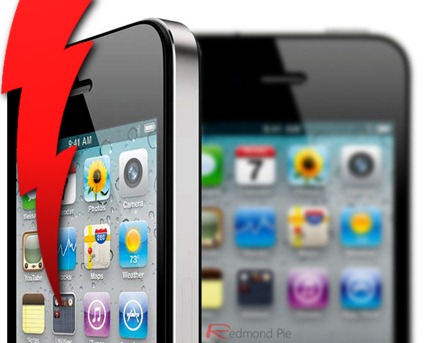Whilst many features of the next iPhone device remain a rumor or mystery, the consensus seems to be that the unofficially-dubbed "iPhone 5" device will be the first Apple smartphone to include a 4G LTE chip. With that in mind, it has now emerged that Taiwanese company Qualcomm is gearing itself up to produce it.
Unlike other iPhone-centered rumors, which are based on leaked parts and the clichéd, unreliable "sources associated with the process," Apple’s decision to include 4G with the third-gen iPad renders its a near-certainty for the next iPhone, which, despite being labeled as the iPhone 5, is the sixth generation of the fruit company’s iconic smartphone.
Qualcomm is said to be responsible for manufacturing the high-speed, long-term evolution chips, which, in the same breath, are to be produced using a 28-nanometer process. If the reports citing Qualcomm as being the chip producer are indeed true, then they’ll likely be built at the Taiwan Semiconductor Manufacturing Company, although since the report stems from sources of the notoriously hit-and-miss DigiTimes, we’ll keep an open mind as to whether this story is entirely truthful.
Broadcom, the company said to be catering to the next-gen iPhone’s Wi-Fi chips, will also look to TSMC’s 28-nanometer process, although it seems – at this point in time – as though the company’s supply chain will not be able to compete market demand; with clients also including NVIDIA, Texas Instruments, Altera, and Xilinx, to name a few.
Although Apple has, like with many new technologies such as NFC, decided to take a back seat and allow competitors to adopt 4G LTE first, now the time has certainly come for implementation. As well as 4G, the new device is also set to break another long-standing Cupertino habit by elongating the display, which has measured in at 3.5-inches since way back in 2007.
Until it is officially announced by Apple, there are certainly no guarantees, but if Apple were to not include 4G with its next smartphone, not only would many consumers would be hugely disappointed, but the iPhone could lose its was with the many more technologically adept offerings from rivaling vendors.
The next iPhone is reckoned to be releasing in September or October this year.
You can follow us on Twitter, add us to your circle on Google+ or like our Facebook page to keep yourself updated on all the latest from Microsoft, Google, Apple and the Web.

